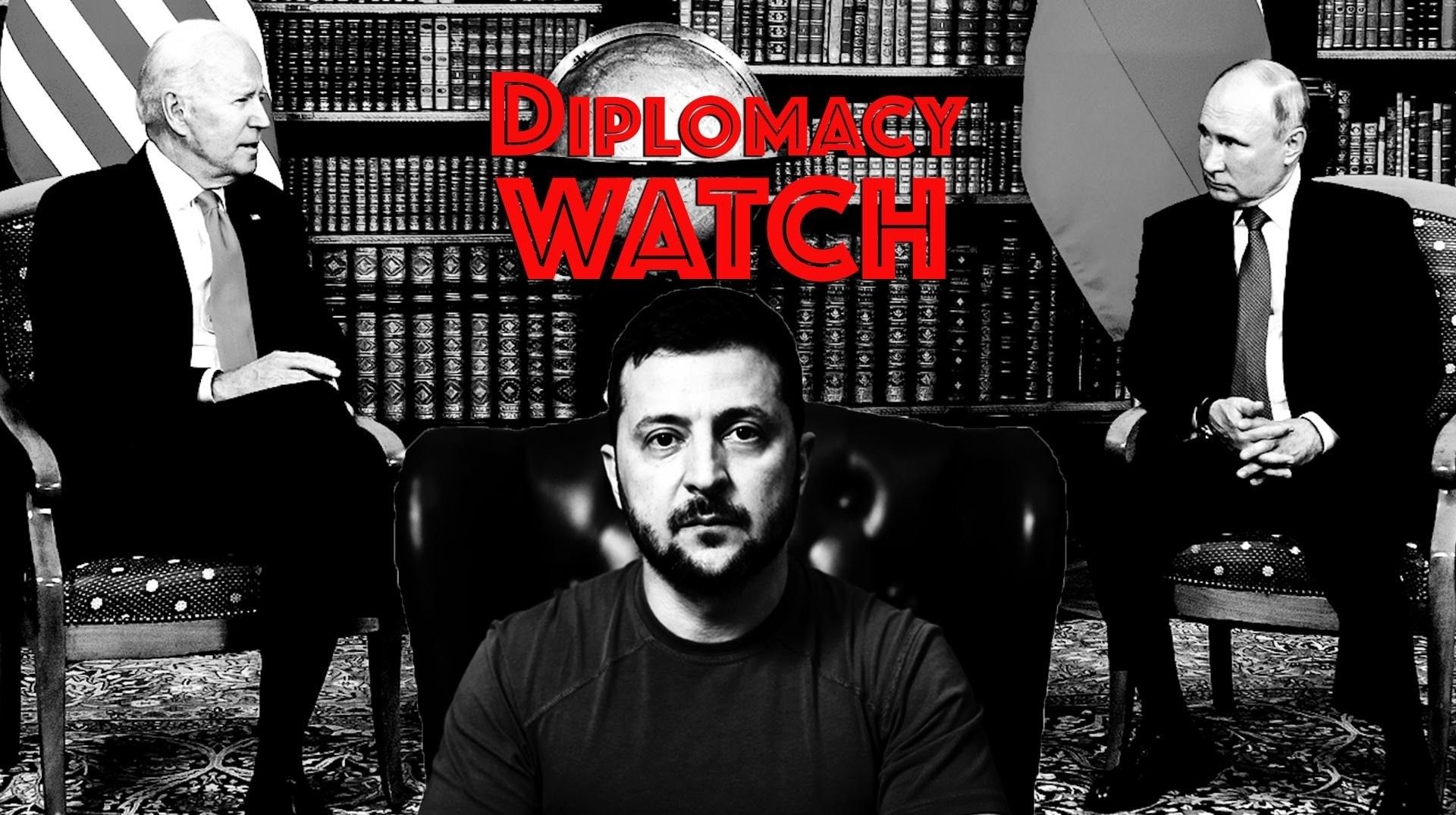It’s 2024, and the U.S. has officially run out of money for Ukraine. As Congress debates what to do next, Kyiv’s military position will inevitably degrade, likely leaving the country unable to mount significant attacks within a month or two, according to some experts.
Ukraine, for its part, says it has no “plan B” if U.S. funding runs out. “We are confident in plan A,” said Ukrainian Foreign Minister Dmytro Kuleba on Wednesday.
It is no great exaggeration to say that what happens on Capitol Hill over the next few weeks could decisively shape the next phase of the war. So let’s dive into what we know.
Senate negotiators are hopeful that they can reach a deal. Sen. Kyrsten Sinema (I-Ariz.) said Wednesday that by next week talks could yield the outline of an agreement that would adopt many Republican-favored border security measures in exchange for funding for Ukraine, Israel, and Taiwan.
But the Senate has never been the real obstacle. Speaker Mike Johnson (R-La.) argues that House Republicans should only accept a deal that includes H.R. 2, a hard-line immigration bill that lays out the GOP’s ideal approach to border control, including many measures that are unacceptable to Democrats.
Some now speculate that Johnson’s goal is to tank Ukraine aid by tying it to border policy. His strategy, the theory goes, would save the trouble of a solo vote on funding for Kyiv, which would likely draw a significant number of “no” votes from House Republicans.
While this approach may work for fiscal conservatives, it could draw blowback from more hawkish members of Johnson’s caucus, who are eager to increase funding for Israel and Taiwan as well as Ukraine.
The main takeaway is clear: Congress may well fail to pass new funding for Ukraine aid this year. Such a possibility could force the Biden administration to make a push for negotiations to freeze the war along its current lines and find a deal that compromises on key aspects of each side’s stated goals.
But an end to U.S. aid could also hurt Kyiv’s negotiating position at a time when Moscow and Western officials have increasingly begun to express interest in talks, as George Beebe of the Quincy Institute argued in RS last year.
“The United States should not remove cards from its hand by ending aid to Ukraine unilaterally or playing them prematurely,” Beebe wrote.
In other diplomatic news related to the war in Ukraine:
— Ukrainian President Volodymyr Zelensky struck back at claims that Russia is winning the war in an interview with the Economist. “Maybe not everything is as fast as someone imagined,” he said, but Russian forces continue to face enormous losses in Avdiivka and other hotspots. On the question of peace talks, Zelensky told reporters that the Kremlin was trying to deceive the West by signaling interest in negotiations “because they don’t have enough missiles, ammunition, or prepared troops.” Notably, he also made clear that Ukraine’s efforts in 2024 would focus on isolating Crimea and preventing Russia from launching new attacks from the peninsula.
— Nearly 500 detainees were freed Wednesday in the first prisoner swap between Russia and Ukraine in nearly five months, according to AP News. Some prisoners had been held since 2022. The United Arab Emirates facilitated the talks leading to the deal, which is the largest single prisoner swap since the war began. The swap highlights the potential role of the UAE and other neutral states in future negotiations.
— NATO head Jens Stoltenberg expects Sweden to join NATO before July, when allies will gather for a summit in Washington, according to Politico. It’s unclear whether Stoltenberg’s comment is realistic given continued foot-dragging from Turkey and Hungary, both of which have pushed hard to get concessions from Europe and the U.S. in exchange for allowing Sweden to join the alliance.
— Polish farmers will once again join Polish truckers in a blockade of a border crossing with Ukraine in protest of the economic impact that special rules for imports of Ukrainian goods have had on local workers, according to the Financial Times. The news is a significant step back for new Prime Minister Donald Tusk, who had hoped to leverage his ties with European and Ukrainian leaders to end the protests. The blockade, which began in early November, has led to long waits at the border and a parallel drop in trade that threatens Ukraine’s export markets.
U.S. State Department news:
In a Wednesday press conference, State Department spokesperson Matthew Miller denied that the U.S. has quietly let go of maximalist goals in Ukraine in favor of setting Kyiv up in a strong position for negotiations. “That is not true,” Miller told reporters.















